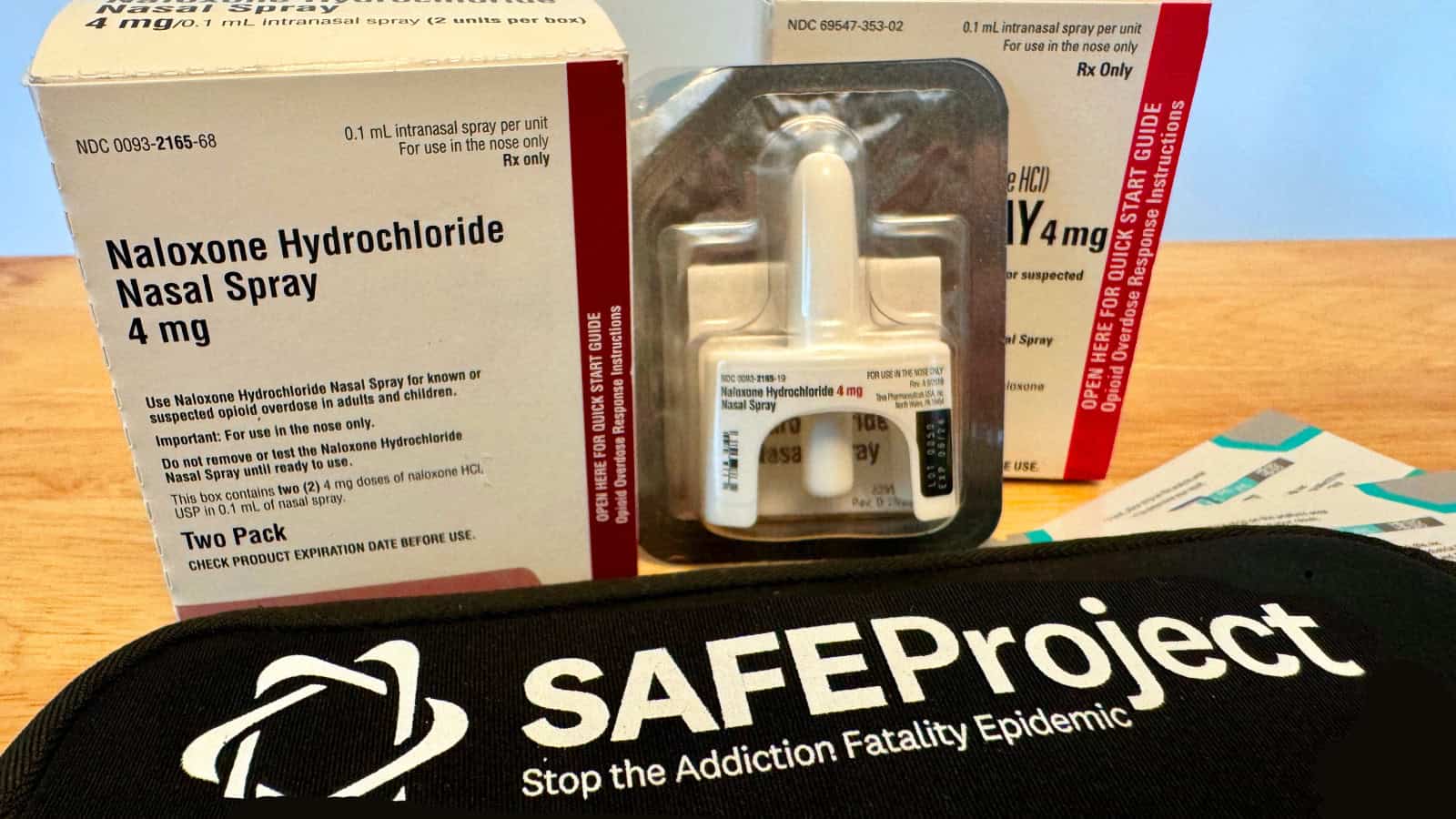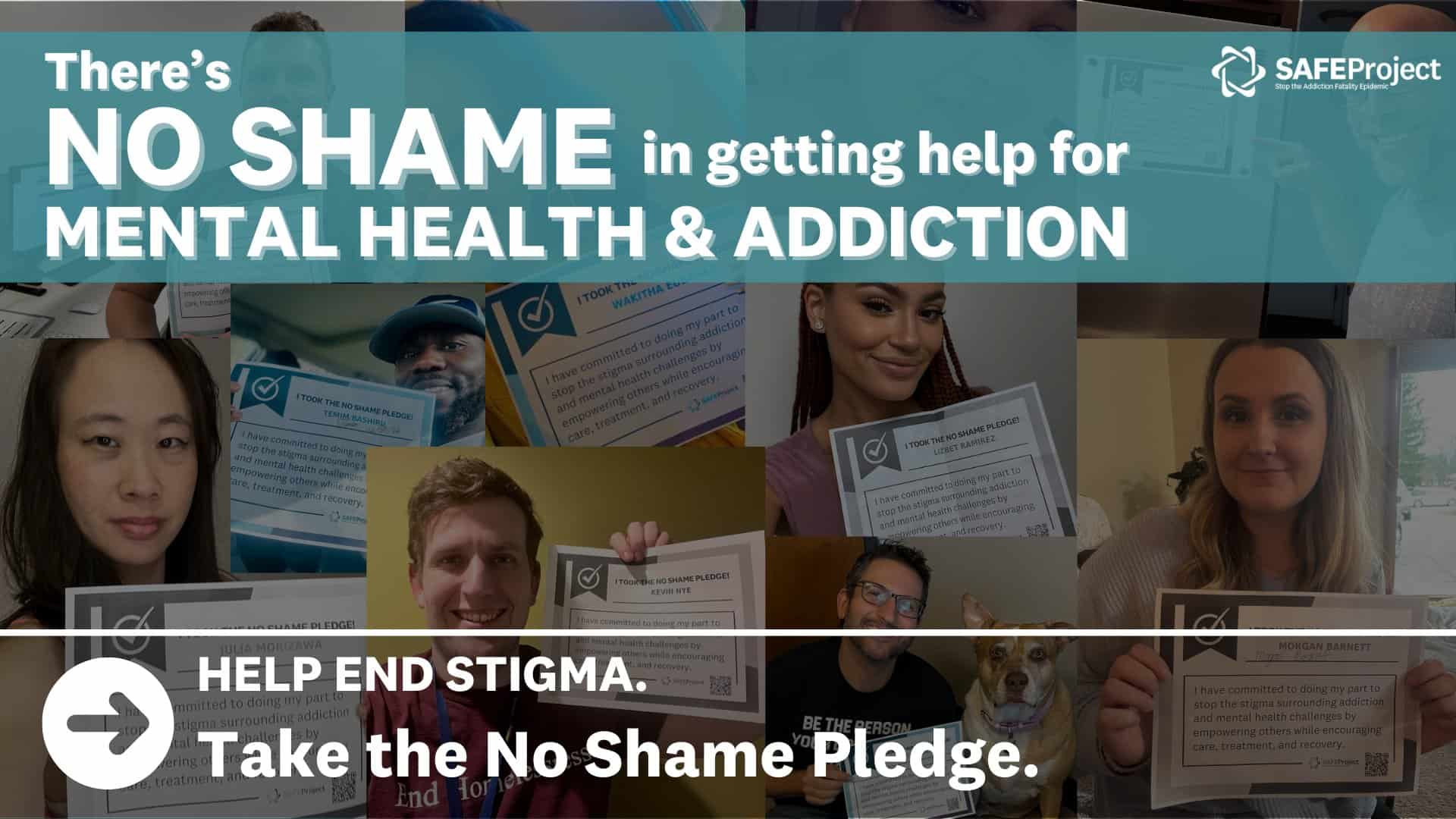The holiday season can be a time of merriment and celebration; however, it can also be difficult for individuals dealing with a substance use disorder, mental health challenges, or experiencing a holiday in recovery for the first time. Revisiting a hometown, reconnecting with family members and old friends, and holiday parties can be triggering environments for anyone, but especially individuals in recovery.
We asked some of our Collegiate Recovery Leadership Academy (CRLA) fellows here at SAFE Project how they deal with the pressures of the holidays and protect their recovery:
Addiction stole me away from my family. Love brought me back. I think about that love often because it is why I chose to live. For years, I felt like I didn’t live up to my family’s standards, making the holidays a difficult time. I couldn’t stand being in my own skin, while all my relatives were grown up and successful. My self-loathing and the family’s watchful eye on my every move led me to stop showing up. I estranged myself from my family. Yet, all they wanted was to love me and for me to feel that love. In Recovery, my holiday experiences are different. I still feel awkward and directionless at times, but I do not assume anyone’s disapproval. I am a Survivor. My life and my place on earth is a gift by the Grace of my Higher Power. That place extends to the family dinner table. Now, I know that my experiences have immense power. I know that my Recovery is my most cherished accomplishment. I know that my life is exactly as my Higher Power intends. When I embrace these personal truths, I can embrace the love that surrounds me-and let go of the rest.
— Joel Tutwiler, CRLA Fellow 2023 – 2024
The holiday season can be a time of joy and connection, but for individuals in recovery, it can also present unique challenges. From gatherings where drugs flow freely to the emotional triggers of family dynamics or memories, staying on track requires intentionality.As someone who has faced addiction and is now in recovery, I’ve learned a few strategies that help me navigate this season successfully:
I make a plan. This might mean bringing a trusted friend, leaving early, or preparing responses if I’m offered drugs. It’s also okay to say no to events that feel unsafe or overwhelming.
Community is a cornerstone of my recovery. Whether it’s attending meetings or leaning on friends from the Rising Scholars program, the CRLA cohort, and the We Rise Club at Mt. San Antonio College, staying engaged reminds me I’m not alone.
The holidays are about connection, not drugs or substances. I try to focus on traditions that foster joy and gratitude, like volunteering, spending time with family, or creating new, drug-free memories.
Recovery is deeply personal, and for me, it’s about nurturing my well-being. A few years ago, drugs nearly took my life. Recovery isn’t just something I practice; it’s a lifeline I hold onto with everything I have. The holidays, with all their social pressures and emotional highs and lows, can be especially challenging, but I approach them with the same determination that saved my life.
During the holidays, this might mean going to the gym, journaling, or simply taking time to breathe amidst the chaos.
For anyone in recovery, it’s important to remember: your journey is your priority. The holidays are just one season in your life, and staying true to your path is the best gift you can give yourself.
COME ON SOMEBODY!
— Jason Chico, CRLA Fellow 2023 – 2024
The holidays can be difficult for everyone but can be even more challenging for those living a recovery lifestyle. It seems one of the most time-honored traditions in many American households is getting together as a family, eating a large meal, and drinking excessively. This can be at odds with people who are trying to moderate their drinking or abstain altogether. Other issues that sometimes arise is the constant barrage of questions from well-meaning friends and family asking us, “Why aren’t you drinking? Or “You can just have one, it’s Christmas.” Trying to explain to others who don’t think like you do can be just as tricky as being around substances.
As a person in longtime recovery, I like to think about my own experience. For years, I was lost in the grip of alcohol and drugs and disconnected from the ones I love. Getting sober and finding a stable footing created for me a path to reconciliation, forgiveness, & hope that I used to rebuild my relationships. By the time my family began to trust me again, I was just so glad to get the chance to show them who I had become, for I had done plenty of “telling” over the years.
That first Christmas was difficult not only because I did not have my previous coping method, but I also had a lot to prove. Alcohol was everywhere, and I did have to explain to more than a few distant relatives why I was not imbibing. I remember becoming extremely uncomfortable, not because I was around substances but because I still felt like there was something wrong with me. In my own communities, I was understood, and drugs and alcohol were rarely mentioned. With my own family, I felt that even though I had overcome, it might never be enough to change the “otherness” that I felt.
At this time, I was working a 12-step recovery pathway and was deep in the big book of Alcoholics Anonymous. I remembered a line from one of the stories in the back that had stood out to me only the day before. It read, “Acceptance is the answer to all my problems today. When I am disturbed, it is because I find some person, place, thing, or situation—some fact of my life—unacceptable to me, and I can find no serenity until I accept that person, place, thing, or situation as being exactly the way it is supposed to be at this moment. Unless I accept life completely on life’s terms, I cannot be happy. I need to concentrate not so much on what needs to be changed in the world as on what needs to be changed in me and my attitudes.”
This line explained everything I was feeling at that moment. I now know that I control the way I feel and the way that I react. I sometimes still want to control others and will always be let down when they don’t behave in the way I need them to. I have applied this parable to my life ever since and have watched my acceptance and happiness grow as a result. Holidays and family can be hard. Sobriety can be extremely hard. Learning to accept the world as it is…well, that’s the hardest! But when you figure it out and start viewing the world through this lens, it becomes the perfect solution to see you through.
— Jordan Cole, CRLA Fellow 2023 – 2024
There is no right or wrong way to spend the holidays. You need to do what’s best for you.
A few tips on how you can navigate the holiday season:
- It’s okay to put yourself first. Be mindful of your needs. Take care of your mind and body, while promoting your physical and mental health. If you need to take a break, go for a walk, read a book, or listen to music, do that! Self-care is about YOU!
- Identify and avoid your triggers. No one knows you, better than you do. You know what affects you and what can bother you. Knowing your triggers can help you avoid them.
- Be kind to yourself and others. Saying kind words goes a long way. It helps build connections, trust, and confidence.
- Find a comfortable space. This can be a space for you to get away when you need time alone–find somewhere that you feel comfortable to feel all of your feelings. Use it as a way to express yourself.
- Have an exit strategy. You may feel trapped at a gathering or during an event, but having an exit strategy in place can reduce stress and anxiety.
- Say no. Set personal boundaries and know when to say no. The holiday pressure is real, but you can say no to certain situations and activities.
- To sum it up: this is your holiday. Do what you need to do to be happy and healthy.


